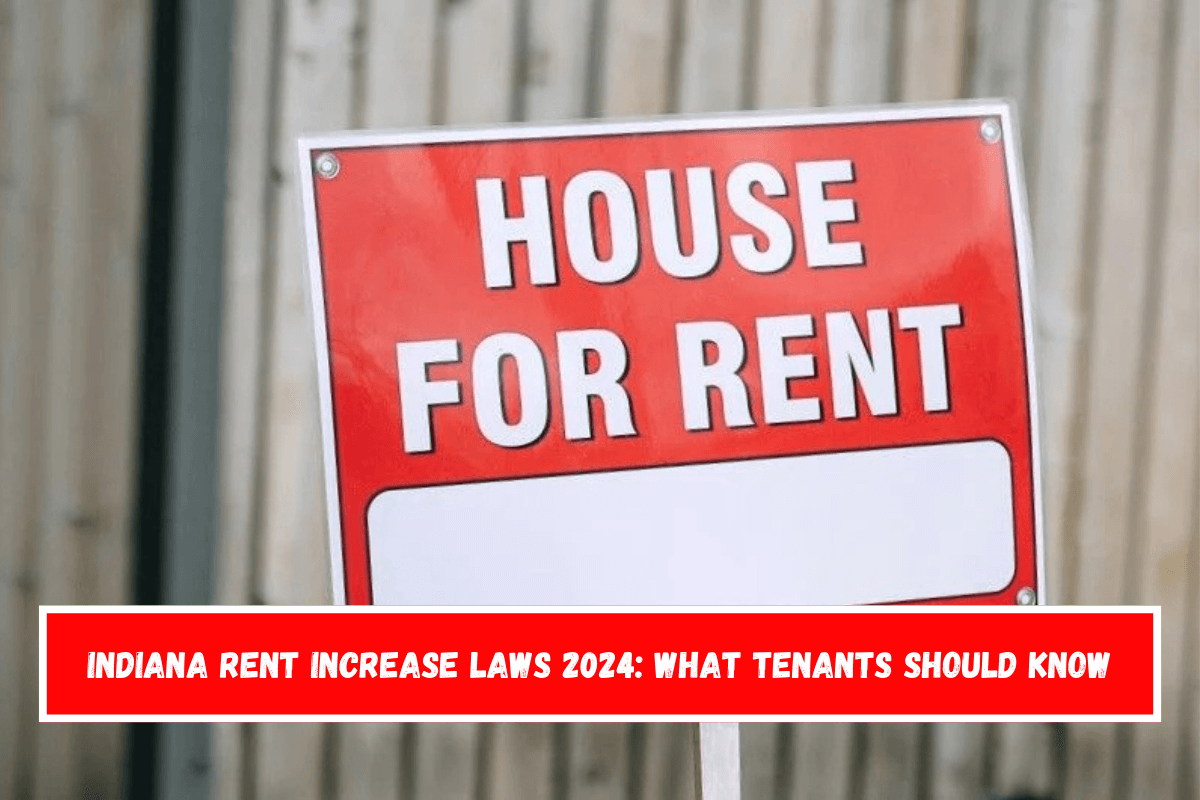Navigating the rental sector can be difficult, particularly when it comes to comprehending rent increase legislation. Tenants in Indiana must understand their rights and the regulations governing rent hikes in order to ensure home stability. In 2024, several crucial factors about Indiana’s rent increase rules can assist tenants in remaining aware and prepared.
Understanding Rent Increase Regulations
In Indiana, there are no statewide rent control rules that regulate how much landlords can raise rents. This implies that landlords have a lot of leeway when it comes to setting and adjusting rents, albeit they must usually give renters notice. While this allows for market-driven rental costs, tenants must remain watchful about prospective hikes.
Notice Requirements
One of the most important components of rent increases in Indiana is the notice period landlords must give. In general, landlords must provide renters with at least 30 days’ written notice before instituting a rent increase. This notice must include the increased rental amount and the date the increase will take effect. Understanding this need is critical for tenants to plan for any financial changes.
Lease Agreements
Tenants should carefully check their lease agreements, as these papers may stipulate the parameters of rent increases. Some leases may include stipulations indicating how frequently and by how much rent can be increased. If your agreement does not mention rent increases, the landlord may determine the new amount as long as they adhere to the notice requirement. It is usually essential for renters to communicate any concerns about possible rent hikes with their landlords in order to set clear expectations.
Rent Increase Limits
While Indiana does not have statewide rent control, several cities and counties may have municipal rules. However, as of 2024, there are no major local rent control legislation that influence the vast majority of tenants in the state. This means that tenants should be aware of any changes to local regulations that may affect rental pricing.
Responding to Rent Increases
If you receive notice of a rent increase and believe it is unreasonable, you have many choices. First, you can talk to your landlord about negotiating the increase. Many landlords are willing to negotiate, particularly if you have been a dependable tenant. Highlighting your track record of timely payments and property maintenance will help you stand out during discussions.
If negotiations fail, tenants may seek help from local housing advocacy groups. These organizations can offer tools and guidance on how to properly respond to rent increases. They may even provide legal aid if the rise appears unreasonable or breaches local laws.
Legal Protections
Tenants should be aware of their legal rights against retaliation. Indiana law forbids landlords from raising rents or evicting tenants in retaliation for exercising their legal rights, such as reporting code breaches or forming tenant unions. If you feel that a rent increase is retaliatory, document all pertinent exchanges and consult with a lawyer.
Planning for Rent Increases
Given Indiana’s lack of rent regulation, tenants should account for anticipated rent hikes. This could include setting aside additional dollars each month or looking into leasing options that provide more stability, such as longer-term agreements. Being proactive can assist tenants in better managing unforeseen changes to their financial obligations.
Conclusion
Understanding Indiana’s rent increase legislation for 2024 is critical for tenants seeking to maintain their home security. Knowing your rights, notice requirements, and the local landscape will help you negotiate future rent hikes and advocate for your interests. Maintaining open communication with your landlord and staying aware about legal protections will help you succeed as a tenant in Indiana’s rental market.
Also See:- Is It Illegal to Marry Your Cousin in Wisconsin? Here’s What the Law Says











Leave a Reply